第25章 THE AGE OF THE DICTATORS(6)
Liberals in and outside of Ecuador tried feebly to shake off this masterful theocracy, for the friendship which Garcia Moreno displayed toward the diplomatic representatives of the Catholic powers of Europe, notably those of Spain and France, excited the neighboring republics. Colombia, indeed, sent an army to liberate the "brother democrats of Ecuador from the rule of Professor Garcia Moreno," but the mass of the people stood loyally by their President. For this astounding obedience to an administration apparently so unrelated to modern ideas, the ecclesiastical domination was not solely or even chiefly responsible. In more ways than one Garcia Moreno, the professor President, was a statesman of vision and deed. He put down brigandage and lawlessness; reformed the finances; erected hospitals; promoted education; and encouraged the study of natural science. Even his salary he gave over to public improvements. His successors in the presidential office found it impossible to govern the country without Garcia Moreno. Elected for a third term to carry on his curious policy of conservatism and reaction blended with modern advancement, he fell by the hand of an assassin in 1875. But the system which he had done so much to establish in Ecuador survived him for many years.
Although Brazil did not escape the evils of insurrection which retarded the growth of nearly all of its neighbors, none of its numerous commotions shook the stability of the nation to a perilous degree. By 1850 all danger of revolution had vanished.
The country began to enter upon a career of peace and progress under a regime which combined broadly the federal organization of the United States with the form of a constitutional monarchy.
Brazil enjoyed one of the few enlightened despotisms in South America. Adopting at the outset the parliamentary system, the Emperor Pedro II chose his ministers from among the liberals or conservatives, as one party or the other might possess a majority in the lower house of the Congress. Though the legislative power of the nation was enjoyed almost entirely by the planters and their associates who formed the dominant social class, individual liberty was fully guaranteed, and even freedom of conscience and of the press was allowed. Negro slavery, though tolerated, was not expressly recognized.
Thanks to the political discretion and unusual personal qualities of "Dom Pedro," his popularity became more and more marked as the years went on. A patron of science and literature, a scholar rather than a ruler, a placid and somewhat eccentric philosopher, careless of the trappings of state, he devoted himself without stint to the public welfare. Shrewdly divining that the monarchical system might not survive much longer, he kept his realm pacified by a policy of conciliation. Pedro II even went so far as to call himself the best republican in the Empire. He might have said, with justice perhaps, that he was the best republican in the whole of Hispanic America. What he really accomplished was the successful exercise of a paternal autocracy of kindness and liberality over his subjects.
If more or less permanent dictators and occasional liberators were the order of the day in most of the Spanish American republics, intermittent dictators and liberators dashed across the stage in Mexico from 1829 well beyond the middle of the century. The other countries could show numerous instances in which the occupant of the chief magistracy held office to the close of his constitutional term; but Mexico could not show a single one! What Mexico furnished, instead, was a kaleidoscopic spectacle of successive presidents or dictators, an unstable array of self-styled "generals" without a presidential succession. There were no fewer than fifty such transient rulers in thirty-two years, with anywhere from one to six a year, with even the same incumbent twice in one year, or, in the case of the repetitious Santa Anna, nine times in twenty years--in spite of the fact that the constitutional term of office was four years.